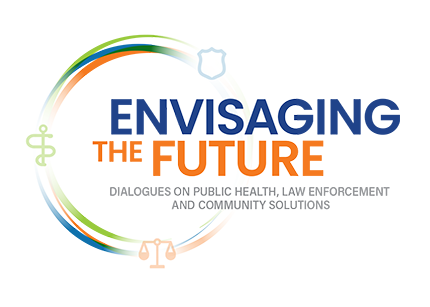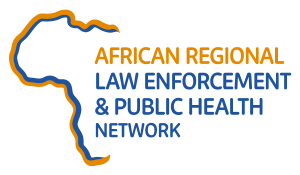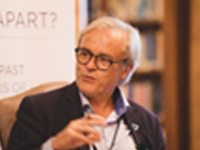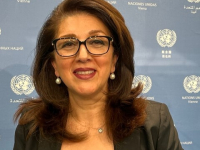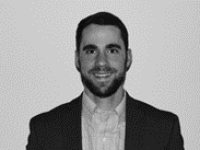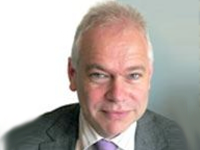Marketplace of Ideas 2022 / Event programme / Opening Session

MONDAY 05 SEPTEMBER 2022
Opening Session | Envisioning the future of policing and public health: The Marketplace of Ideas
7am Los Angeles/10am New York/3pm London/5pm Nairobi/9pm Bangkok/midnight Sydney
Worldwide, there is an urgent need for new approaches to long-standing societal problems such as drug use, mental illness, homelessness, gun violence, sexual violence, and many more. We increasingly recognize that our usual ways of addressing these problems – over-reliance on punishment, coercion and incarceration – have not worked or have systematically made things worse. Sectors intended to uphold life, safety and wellbeing – law enforcement and public health – operate in silos or even in competition, when they clearly address the same problems with the same root causes.
In response to this historic moment and need, the Global Law Enforcement and Public Health Association (GLEPHA) is documenting efforts to develop alternative approaches to community safety and health needs, by operationalizing a public health-based response, and working in partnerships with law enforcement. The GLEPHA project focuses on programs across a wide range of issues and from countries all round the world. In this series of events, we begin to showcase some of these urgently needed innovative approaches, and to look at lessons learned and future directions.
Session duration: 90 minutes
MODERATOR
Jean-Luc Lemahieu
Jean-Luc Lemahieu was appointed Director of the Division for Policy Analysis and Public Affairs (DPA) at the UN Office on Drugs and Crime (UNODC) in December 2013. Before taking up this position, he gained 20 years of field experience serving in various countries challenged by political economies influenced by the illicit economy, including Afghanistan and Myanmar, and in drug transit regions such as the Caribbean. His first appointment with the UN dates back to 1990, as a Junior Professional Officer with the United Nations Industrial Development Organization (UNIDO) assigned to the Republic of Korea. Prior to joining UNODC (then the United Nations Drug Control Programme) in 1994, he also had a short tenure with the United Nations Development Programme (UNDP). Mr. Lemahieu is a licensed jurist with a postgraduate degree in international law.
KEYNOTE SPEAKER
Marina Mahathir is a writer, women’s rights and HIV/AIDS activist. She served as the President of the Malaysian AIDS Council for 12 years from 1993-2005 and was a member of numerous international and regional committees on HIV/AIDS.
In 2010, Marina was named the UN Person of the Year by the United Nations in Malaysia. On the 100th anniversary of International Women’s Day in 2011, Marina was one of only two Malaysian women named to WomenDeliver.org’s list of 100 Most Inspiring People Delivering for Girls and Women. In 2016, Marina received France’s highest award, the Chevalier de la Legion D’Honneur in recognition of her work in HIV and women’s rights.
She is a regular writer who has been sharing her musings in The Star newspaper for more than 20 years; her think pieces have been compiled into three books, In Liberal Doses, Telling It Straight and Dancing on Thin Ice. In 2021, the release of her latest book, The Apple and the Tree, reveals more about her experiences as the daughter of the former prime minister Tun Dr Mahathir Mohammad.
Morgana Danielė
Before becoming a member of the Lithuanian Parliament, for more than a decade M. Danielė has been working on drug policy. In the Eurasian Harm Reduction Network, where work on drug policy began, she was working on the organization’s project activities in Tajikistan, Kazakhstan, Georgia, Moldova and other Eastern European and Central Asian countries.
She continued her work in drug policy by becoming the head of the international youth organization Youth RISE. From 2018 to 2019, she was the Youth Representative of the Civil Society Council on Drugs. At the same time, together with her colleagues, founded a youth organization in Lithuania “Jauna banga”.
International work experience led her to the Republican Center for Addictive Diseases in Vilnius, where she worked as a project researcher, public relations specialist, advised on harm reduction issues, and established a substitution treatment patient initiative group with a colleague.
Currently, she is a member of the Health Committee in the Lithuanian Parliament, the Chairwoman of the Addictions Commission, the Chair of the Interparliamentary Relations with Canada Group, and a deputy to the chair of the APPG on Reproductive Health and Rights.
SPEAKERS
Prof. Monique Michal Marks
Prof. Marks is a research professor who heads up a research centre at the Durban University of Technology. She also co-directs the Bellhaven Harm Reduction Centre which provides low-threshold harm reduction services to roughly 200 homeless and how income people daily. While Prof. Marks has worked in the general field of policing and security governance for over twenty years, in recent years she has focused on the interface between public health and public safety, specifically around drug use and harm reduction. She has authored 7 books and over 60 peer reviewed articles.
Michael Wilson
Michael serves as the South Africa country director of Advance Access & Delivery, a global health non-profit organization. Michael is one of the co-founders of the Bellhaven Harm Reduction Centre, South African’s first low-threshold harm reduction centre. Since 2018, Michael has served as an acting consultant to the United Nations Office of Project Services (UNOPS), supporting countries to strengthen national tuberculosis and HIV programs. Michael holds an appointment as Adjunct Assistant Professor in the Department of Health Behaviour at the Gillings School of Global Public Health and has over a decade of experience designing and running health programmes for people who use drugs and homeless individuals in the United States and South Africa.
Dr. Linda Naidoo
Linda Naidoo is a Project Officer in the area of Gender Based Violence at the United Nations Office on Drugs and Crime, Regional Office for Southern Africa. She majored in Psychology, Social Work, Education, Development Administration, Criminology; has various other credits, and is a Ph.D holder. She held the position of Deputy Director and subsequently Executive Director for approximately 13 years, at a Non- Governmental Organisation (Childline KwaZulu-Natal). She was employed as a Child Protection Advisor at Mott McDonald International Health, lectured at several institutions and provided an array of consultancies. Her leadership and work experience extends from social development to criminal justice, to crime prevention. She has presented several papers, at local and international conferences, and published several articles.
Auke van Dijk is advisor to the chief of the Amsterdam police and strategist at the think tank Agora Police & Security. He has an academic background in international relations theory and international political economy. He has been senior advisor at the Committee for Evaluation of Intelligence and Security Services and was a member of the Vision on Policing Committee (Council of Chief Police Commissioners) that delivered a new comprehensive strategy for future policing. He is cofounder of the Agora Police & Security. The Agora is an experimental space for thinking and debate among practitioners and academics. The central aim is to enhance the organisation’s ability to think; more specifically to make sense of the societal context and its current or future consequences for day-to-day policing, and to question the way ‘things are done’ by and in the organisation.


